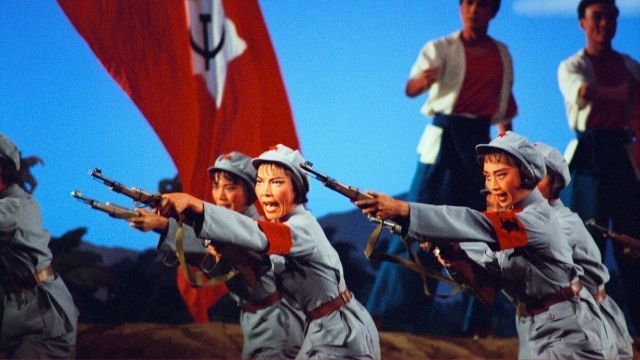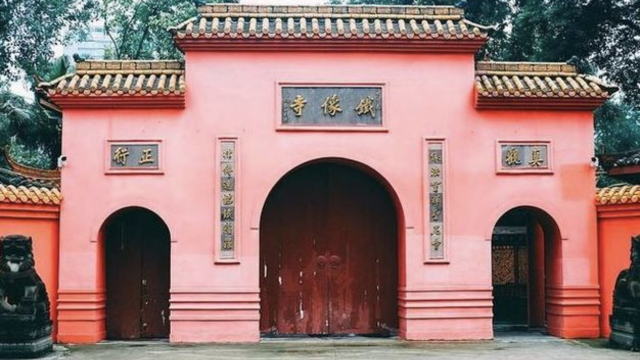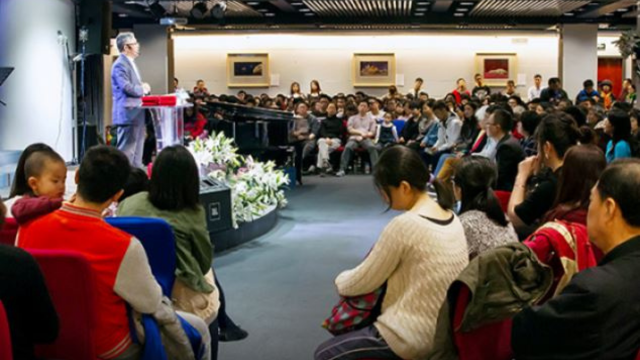It’s not the U.S. only. From Canada to Europe, politicians and security experts urge actions against China’s human rights violations and dreams of global dominance.
by Ruth Ingram

Atrocities meted out against Uyghurs have been branded the “most pressing human rights crisis of our time,” by renowned legal expert and civil liberties champion Irwin Cotler. The advocacy pioneer, famed for his tireless efforts at clinching the release of Nelson Mandela has put his weight behind the Uyghur cause, labeling it as “genocide,” and urges nations to unite to halt the horrors in North West China.
In his keynote remarks at a symposium organized by the MIGS (Montreal Institute for Genocide and Human Rights Studies), a leading Canadian think tank for the prevention of genocide, mass atrocity crimes, and violent extremism, the retired Canadian minister of justice said, “Silence becomes complicity. We must act.”
He urged the world to unite and expose the atrocities and call them out as acts of genocide under the genocide convention.
Quoting holocaust survivor and Nobel peace laureate Elie Wiesel, he urged, “Silence with evil remains, and becomes complicity with evil itself. Indifference always means coming down on the side of the victimizer not on the side of the victim. We cannot be indifferent, we must act.”
In the wake of a Canada parliamentary committee’s landmark decision to label the atrocities unfolding in North West China as genocide, and subsequent calls to impose Magnitsky sanctions on officials implicated in the Uyghur scandal, the MIGS conference has joined a raft of seminars and parliamentary debates around the world during the past few weeks, where government ministers and experts have called for joint action against the CCP.
Momentum has been growing to flag up international security issues vis a vis China. The high level “Davos” of International security, The Halifax International Security Forum summit, representing over 90 countries and 300 participants and created to strengthen strategic cooperation between democracies, warned the world this weekend that, “modern-day China has emerged as the most powerful authoritarian state in history and the major challenger to the liberal world,” concluding “the challenge is no longer about trying to cope with a rising China governed by autocrats, but that the real China challenge for the world’s democracies is how to co-operate with each other.”
Even news this week that the Pope dared to risk the wrath of China by mentioning the Uyghurs in his book, Let Us Dream, was groundbreaking itself. Studiously having avoided ruffling China’s feathers to date by mentioning persecution on its territory, he says in his book that he “often thinks of persecuted peoples, the Rohingya, the poor Uyghurs, the Yazidis…” He fell short of calling Beijing out for the clampdown on and persecution of Christians and Buddhists, and in so doing risked the ire of the USA and human rights groups, but perhaps ensured the agreement the Vatican made with Beijing over the Catholics this year was not unduly threatened.
Sean Roberts, author of The War on the Uyghurs, sees some glimmer of hope that under the new President Elect of the USA, Joe Biden, an international coalition might be formed to stand up to Beijing, but called on the developing world, where most of China’s current support comes from, to join forces and resist CCP manipulation to stay silent. “There’s a real sense now that this could happen,” said a cautiously hopeful Roberts. Canadian MP Garnett Genuis, whilst lauding IPAC (the Inter-Parliamentary Alliance on China), which now comprises over 100 MPs from 19 of the world’s democratic countries, urged a similar alliance of nations.
Uyghur activist, lawyer Nury Turkel, co-founder of the Uyghur Human Rights Project, and member of the U.S. Commission on International Religious Freedom, is an outspoken critic of the world’s indifference to the suffering of his people. Cited in Time Magazine’s list of the world’s top 100 most influential people, he asserted at the Canadian symposium that passivity and inaction on behalf of the world community causes history to repeat itself. “History doesn’t just repeat itself, bystanders let it do this,” he said, as he begged nations to wake up to the China threat.
“I have been speaking on these issues for four years,” he said, adding that he was getting tired of repeating himself and sounding the alarm for the genocide being “committed in daylight.”
In an emotional appeal, Turkel claimed that the international community is still “played by Chinese rhetoric, Chinese disinformation, Chinese propaganda and the Chinese influence campaign.” He asked, “how many Uyghur women’s heads need shaving for just one shipment of 13 tons of hair?” referring to a recent shipment of hair from Xinjiang intercepted at a US port. “How many shipments did we miss? How many other countries have been receiving shipments?”
But his fear is that China does not stop at human hair and cotton products, whose supply chains are also now the subject of investigation and examination in the USA, the UK and Europe. Most worrying, he said, is the development and export of digital dictatorship, which to date 80 countries around the world have bought into, up from 36 countries last May.
“Democracy, privacy, and surveillance will affect the democratic norms we appreciate and cherish,” he feared. “This is coming to us and into everyone’s life.” He urged businesses, political leaders, consumers, law makers, NGO representatives, citizen activists, and engineers to wake up to the encroachment these technologies make on accepted liberties. “They can no longer just say this is just another human rights problem,” he warned.
Groups allied to the UK government, are also putting their weight behind a new approach to Beijing. The APPG (All Party Parliamentary Group) on the Uyghurs and the China Research Group, set up by the Tory Party this year during the pandemic to promote “fresh thinking” about how Britain should respond to China’s rise, advocated this month, not only employing every possible imaginative and legal tool to challenge China’s crimes in the courts both nationally and internationally, but unanimously urged the setting up of alliances outside the hitherto accepted channels for investigating international criminal acts.
Tackling the “behemoth of China,” according to Alastair Carmichael, co-chair of the APPG, should have been done ten years ago. Progress is being made now, he said, but the issue should not be put on the back burner. “No individual country can take on China,” he said at a recent webinar. “We need a multilateral approach of all countries of that care about human rights,” he said, adding that in the 70’s and 80’s no one would have ever imagined that South Africa could be changed, or that the Berlin Wall would come down. “But it happened,” he said.
Despite China’s seat on the UN Human Rights Council, which limits options at the UN over genocide determination, members and advocacy groups should press the Secretary General of the UN, who to date has remained silent, to show real leadership. Erin Farrell Rosenberg, Senior Advisor at the Ferencz International Justice Initiative at the US Holocaust Memorial Museum’s Simon-Skjodt Center for the Prevention of Genocide, urged pressure to be put on other parts of the UN such as the General Assembly and the High Commissioner for Human Rights, who has the ability to press for access into Xinjiang and to carry out investigations. “The Security Council might be influenced by China but this does not mean that the rest of the UN and its organs and agencies are the same,” she said, adding that pressure could be put on China because it is a signatory to the convention against torture.
As for Germany’s standpoint, Johann Wadephul, deputy chair of the Christian Democratic Union remarked that their view of China had changed over the years. From being a developing country to a trading partner, the relationship has changed subtly from that of a partner, to an economic competitor and to now, a systematic rival. “China is trying to change the present world order and, in many respects, has already done so,” he warned. “It systematically tries to weaken democracy, fundamental freedom and the rule of law worldwide,” mentioning the South China Sea and Hong Kong. “China attempts to create a sino-centric world order by making smaller countries economically dependent and tries to impose its own narratives by false propaganda,” he pointed out citing Tibet, Xinjiang, Hong Kong, and Taiwan.
“We are as strong as we stand together,” he stressed. “We must not allow China to divide us,” urging complete agreement on investment protection and intellectual property.
“We shouldn’t be fooled by China,” he said, whose ambition is to become the most powerful nation in the world by 2049, 100 years after the revolution. The solution, he said, was to work closer together within the European Union, aligning with the UK, the United States, and close friends such as India, Japan, Australia, and Canada. A network should be created of countries who are ready to obey the international order and rule of law and demand this also from China.
China watcher Sam Olsen, based in Singapore, pointed out that in order to face up to China and counter its efforts to rally support from weaker countries, money needed to be on the table. Between 2015-2017, the digital Silk Road provided more monetary funding to connectivity in Africa than all other sources combined. Western efforts on funding were being blown out of the water, he said, “Until Europe and America get their act together to provide an alternative to that, I can’t see how it’s going to make any difference.” He concluded by saying that however important dialogue was, “it’s all about money at the end of the day.”
Nury Turkel dismissed fears that nations have of standing up to China claiming retaliation was usually inconsequential. Neither the US Uyghur Human Rights Policy Act of June last year, which is singling out growing numbers of companies implicated in the Uyghur forced labor scandal, nor the sanctioning of the Xinjiang Paramilitary Production and Construction Corps, with its 800 shell companies around the world, has significantly affected the US,-China relationship, he said. “It works. There has been no real retaliation,” he said. “Western democracies need to stop worrying about Chinese retaliation,” he urged. “Do what is right and what is conscionable. We are talking about real lives and real human beings who have names and families.”
Source: Bitter Winter












